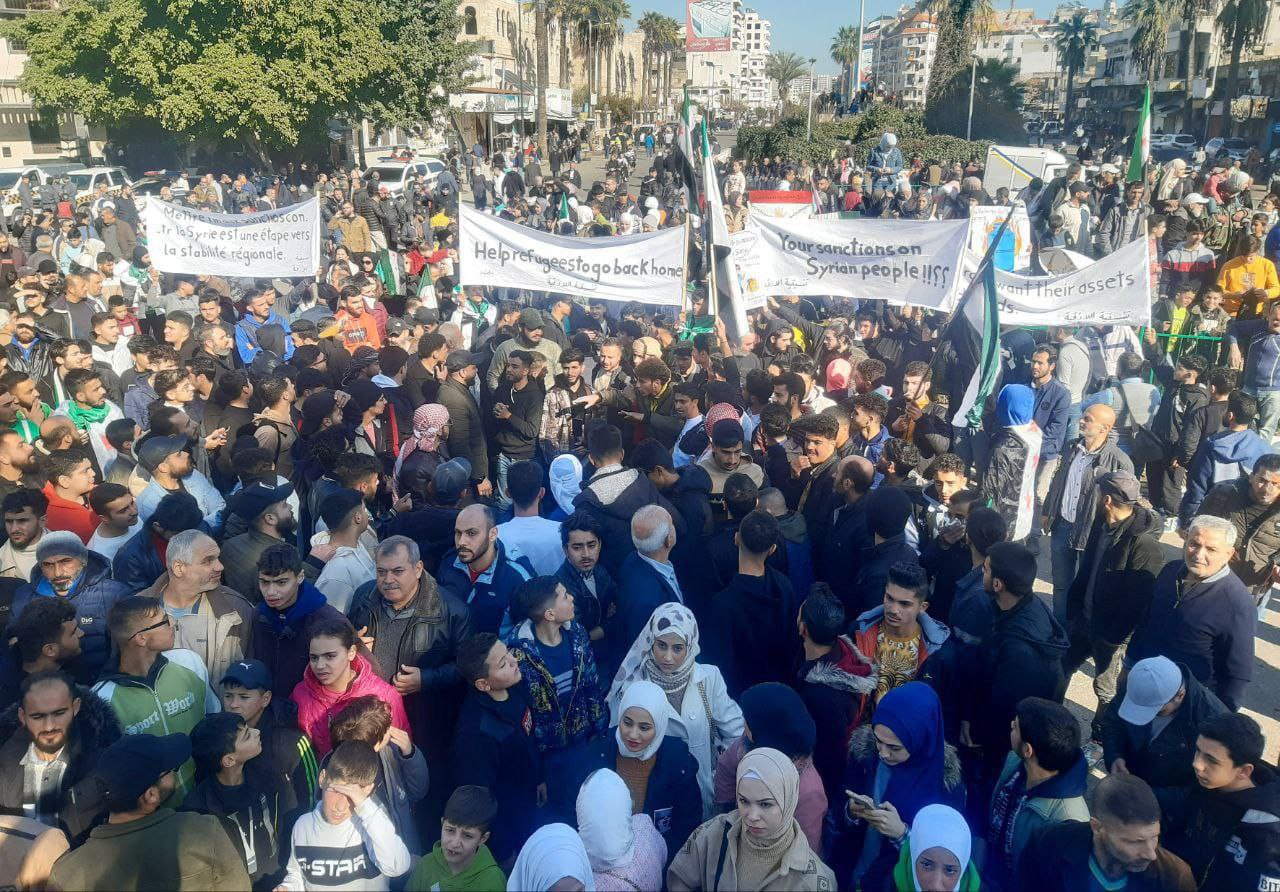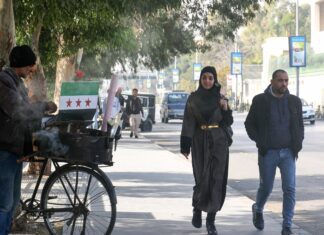
A cautious shift in international policy toward Syria has begun, with the United States and Europe signaling limited relief from sanctions following the ousting of Bashar al-Assad last December. While sanctions remain largely in place, recent developments suggest a gradual loosening of restrictions aimed at addressing urgent humanitarian and economic needs.
US License Offers Temporary Relief
On January 6, the US Treasury Department announced General License No. 24, permitting specific transactions with Syrian government institutions for six months. The license allows the sale and supply of energy-related goods, personal financial transfers, and humanitarian aid but stops short of lifting sanctions.
“This decision reflects a humanitarian goal to alleviate the suffering caused by severe economic sanctions while maintaining pressure for political reform,” economic researcher Khaled Turkawi said.
The effects of the license were immediate. On January 7, Syrian officials confirmed that Qatar and Turkey would send floating power plants to the Syrian coast, boosting the country’s electricity output by 50%. Talks are also underway for Gulf states to finance a 400% increase in public sector salaries, a long-promised measure now closer to fruition.
However, the US license imposes strict limitations, prohibiting transactions with Syrian military or intelligence entities and barring investments in reconstruction projects.
European Allies Show Interest in Policy Shift
While the US approach remains cautious, European countries appear poised to accelerate their engagement with Syria. On January 3, French and German foreign ministers met with Syria’s interim leader Ahmad al-Sharaa in Damascus. Although Germany publicly maintained that it was too early to lift sanctions, diplomats reportedly discussed targeted relief measures, including reconnecting Syria’s banking sector to the global financial system.
Italian Foreign Minister Antonio Tajani echoed these sentiments during a January 10 visit to Damascus. “From today, we give life to a new path for political, diplomatic, and friendly relations between Italy and Syria,” Tajani stated, calling for lifting sanctions to support Syria’s recovery.
At a joint press conference with Syrian Foreign Minister Asaad al-Shaibani, Tajani emphasized Italy’s commitment to combating illegal immigration and drug smuggling while enhancing economic ties in energy, agriculture, and education.
Challenges to Sanctions Relief
Despite these moves, significant hurdles remain. Many sanctions target individuals and entities associated with Assad’s regime, and lifting them would require robust political reforms to ensure accountability. Further complicating matters is the role of Hayat Tahrir al-Sham (HTS), the military group that led the operation to depose Assad.
Designated a terrorist organization by the US, EU, and UN, HTS’s involvement in Syria’s transition poses legal and political challenges. Efforts to delist HTS from these designations are underway but could take years, even if the group dissolves, as interim leader al-Sharaa has proposed.
Additionally, US officials argue that sanctions remain a vital tool for ensuring Syria’s new government adopts inclusive and participatory policies.
A Fragile Recovery Ahead
The limited sanctions relief offers hope for Syrians struggling with severe economic conditions but falls short of enabling large-scale reconstruction. Floating power plants and remittance channels may provide temporary stability, but the transitional government faces mounting pressure to demonstrate reform and governance capabilities.
“This is a testing period,” said Turkawi. “The international community is watching closely to see whether Syria’s new leaders can deliver political stability and comply with international standards.”
As discussions continue in Washington, Brussels, and Damascus, the delicate balance between providing humanitarian aid and enforcing accountability will shape Syria’s path forward. Whether the recent changes mark the beginning of comprehensive policy shifts or remain temporary measures will depend on the country’s progress in building a stable and inclusive future.








